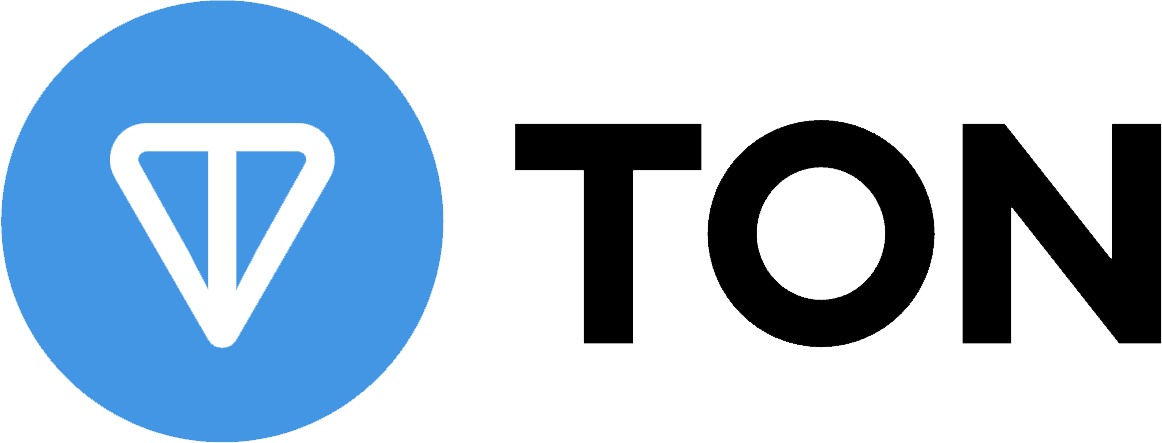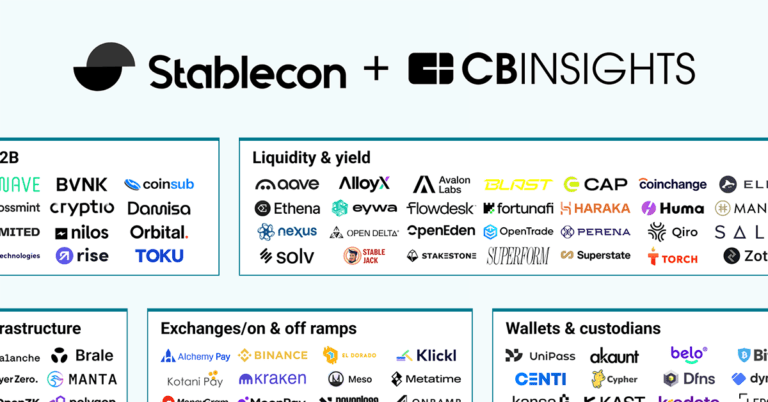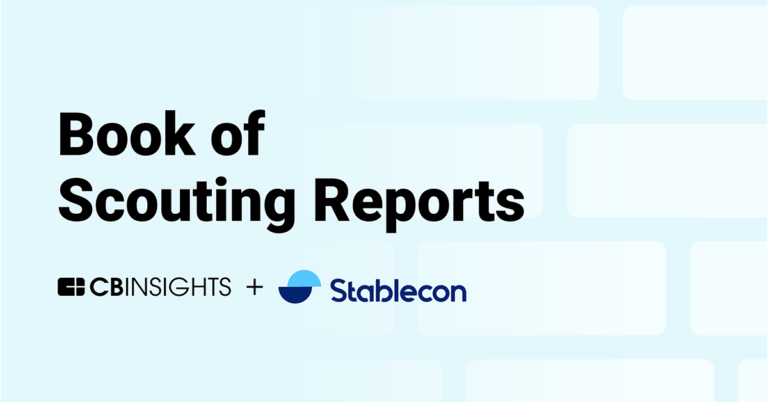
TON
Founded Year
2018Stage
Unattributed VC - III | AliveTotal Raised
$15MLast Raised
$5M | 1 yr agoMosaic Score The Mosaic Score is an algorithm that measures the overall financial health and market potential of private companies.
-32 points in the past 30 days
About TON
TON offers a decentralized blockchain platform and web3 ecosystem that facilitates cryptocurrency transactions and smart contracts. Its platform includes a cryptocurrency wallet, tools for creating and managing tokens, and a framework for developing mini apps and games that utilize the Telegram community. It primarily caters to the cryptocurrency, gaming, and digital asset management industries. It was formerly known as Telegram Open Network. It was founded in 2018 and is based in Zug, Switzerland.
Loading...
Loading...
Research containing TON
Get data-driven expert analysis from the CB Insights Intelligence Unit.
CB Insights Intelligence Analysts have mentioned TON in 2 CB Insights research briefs, most recently on May 29, 2025.

May 29, 2025
The stablecoin market map
May 23, 2025 report
Book of Scouting Reports: Stablecon 2025Expert Collections containing TON
Expert Collections are analyst-curated lists that highlight the companies you need to know in the most important technology spaces.
TON is included in 3 Expert Collections, including Blockchain.
Blockchain
13,872 items
Companies in this collection build, apply, and analyze blockchain and cryptocurrency technologies for business or consumer use cases. Categories include blockchain infrastructure and development, crypto & DeFi, Web3, NFTs, gaming, supply chain, enterprise blockchain, and more.
Fintech
14,203 items
Excludes US-based companies
Stablecoin
471 items
TON Patents
TON has filed 7 patents.
The 3 most popular patent topics include:
- beds
- chairs
- furniture

Latest TON News
Nov 7, 2025
But now that model is shifting. When you combine AI and blockchain, you get something entirely new: software or AI agents that act on our behalf, not just process a payment. According to Boston Consulting Group (BCG) , global payments revenue is expected to reach $2.4 trillion by 2029, with agentic AI, digital currencies and real-time payments shaping the change. To show some of these shifts, I'd like to discuss three companies that I've had the chance to talk to recently. Bankr, Olas Pearl, and the fast-rising TON chat wallet ecosystem are all doing fascinating things in this space. Each one changes the game for online payments. Bankr: The Conversational Wallet That Meets Users Where They Already Are I loved my conversation with Danielle Brown-Wolf, who leads growth at Bankr. She explained the simple goal of Bankr: to reach people where they already spend their time and solve one of the biggest pain points in crypto: accessibility. Bankr is a conversational, onchain AI agent that lives at bankr.bot and is also accessible on X and Telegram. It turns your social handle into a wallet login, powered by Privy, and executes real transactions directly from chat. You can send a message like “Buy $100 of ETH” and the agent will process the transaction, bridge across chains if needed, and record everything transparently on the blockchain. Every interaction is verifiable and happens in real time. This approach removes friction for everyday users who might not be familiar with decentralized wallets or seed phrases. Bankr lives where the audience already is. On X and Telegram, your social handle becomes your wallet login. You type a simple instruction, and the agent executes it, with every transaction recorded on the blockchain. I watched Bankr run technical analysis, place limit orders, settle a sports wager on Polymarket, and list an NFT on OpenSea, all from social feeds and a private terminal. This is more than trading. It's a payments and value transfer layer that feels like a conversation. Someone posts a pick for the game. A friend replies, “Bankr, place 50 on the Eagles.” The action happens right there in public, and others can copy it with one reply. Groups that never thought of themselves as crypto users are suddenly moving money together because the wallet feels like chat, not finance. The product focuses on safety and recovery. Accounts are non-custodial through Privy. Users can back up with email or sign in through Telegram or Farcaster if their X handle is suspended. Gas fees are covered. Links to Basecan give instant proof of what happened. Bankr even turned a security feature with Blockaid into a live demo by asking the agent to buy a known fake token. The agent refused in public and explained why. That's how you build trust. Danielle Brown Wolf, Head of Growth at Bankr, calls this “the PayPal moment for crypto.” In our conversation, she said “Bankr brings real payments into everyday conversations. When you can send or invest money as easily as you tweet, that's when digital finance finally becomes mainstream.” The analogy fits. PayPal made payments as simple as an email address. Bankr is doing the same with a social handle and an intelligent agent that can understand intent and act. It's software that lives where the customer already is. Olas Pearl: An Agent App Store That Puts Ownership First I spoke with David Minarsch, the co-founder of Valory AG, the team behind the Olas network. Their latest launch, Pearl v1, introduces a simple idea. It's an AI agent marketplace. According to Salesforce, by 2030 , consumers will have personal AI agents acting on our behalf and will handle everything from planning our schedules to managing our finances. People can browse, create, and launch autonomous agents on a decentralized platform that functions like a marketplace. They start by setting a goal and configuring what they want the agent to do. Once it's created, they can fund it with a card or wallet, and it operates independently while remaining fully under your control. Every action the agent takes is recorded onchain, creating a complete and transparent history. Nothing runs behind closed servers, so your keys, data, and decisions stay private and secure. Because the agents live on a decentralized network rather than a single company's cloud, they continue to function even if part of the system goes offline. In simple terms, it's a place where anyone can build and own AI-powered agents that work for them directly, without relying on centralized platforms. Why does this matter for payments? Commerce is full of small but repetitive tasks that humans still perform by hand, like invoice matching, subscription updates, split payments, rewards, and fee management. In chatting with David Minarsch, Cofounder of Valory, he told me that they “see a future where every individual can deploy their own on-chain AI agent. And it will be one that manages money, data, and decisions transparently. The goal isn't to replace people; it's to empower them with digital teammates that they fully own.” Pearl gives developers a way to create specialized agents that execute those jobs from start to finish with verifiable results. It looks like an app store, but the apps are workers that move value according to clear rules you set. One example, a DeFi trading agent named Modius, produced a strong return in just a few months and did it with full on-chain transparency. The future is clear. As the catalog grows, many of these agents will go beyond trading. They'll handle payments, reconcile wallets, and streamline everyday financial tasks that still rely on email or manual approvals today. TON Chat Wallets and Goodies: Payments and Culture Inside Messaging The third space to watch is the TON wallet ecosystem inside Telegram. It pairs a massive user base with chat-native money. Wallets live under the same keyboard people already use to message friends, brands, and creators. The next step is easy to imagine: intelligent agents that become the front door to payments inside those chats. Think about a customer support bot that issues refunds after verifying an order, or a creator's bot that sells a digital good and automatically splits revenue among collaborators. A small business agent could invoice a group chat and divide the bill across multiple wallets. None of this needs a checkout page. It all happens inside the conversation, with payments recorded on the blockchain and receipts visible to both sides. TON's biggest advantage is scale, and Goodies shows why that matters. Goodies is a Telegram mini app built on TON that blends collectibles, brands, and payments in one place. When I tried it, I watched sticker packs from Kung Fu Panda, Pudgy Penguins, and Lamborghini sell out in seconds. There's already a thriving secondary market for these stickers, where people buy and trade them directly inside Telegram. It feels like if NFTs and emojis had a baby, fun, social, and simple. I had the chance to spend time with Danny Wheeler, Key Advisor at the Goodies Marketplace. This was just after their amazing launch with Kung Fu Panda and Pudgy Penguins. He told me in that conversation that “our goal is to build the world's first chat native economy. Every brand sticker, every collectible on TON, is proof that digital commerce can be instant, emotional, and transparent. When someone sends a sticker, they're not just sharing an emoji but they're sharing ownership and culture.” Each drop combines pop culture with blockchain in a way that feels natural and mainstream. You tap, pay, and own it. No setup. No friction. Just an experience that turns digital art into instant commerce. This is what digital payments look like when AI, culture, and blockchain work together. But Don't Count PayPal Out Yet! PayPal isn't standing still either. The company has been quietly reinventing itself for the new digital era, experimenting with stablecoins, AI-driven fraud detection, and blockchain infrastructure to stay relevant in a world moving toward decentralized finance. Its launch of PayPal USD (PYUSD) marked one of the first times a major payments provider issued its own fully backed stablecoin, signaling that even legacy platforms see the shift coming. PayPal is also expanding into new areas of cross-border payments, merchant automation, and crypto accessibility, working to stay the default for both traditional users and the next generation of digital wallets. What I saw at their Developer Days was also an impressive vision of where AI Agents are heading. Their vision shows even established leaders are thinking about autonomy, personalization, and intelligence inside payments. What Replaces PayPal Is Not One Company, It's a Pattern All three of these companies share the same pattern. They meet users where they already are. They turn plain language into secure actions. They keep ownership and transparency with the user. They hide the crypto complexity but preserve trust and control. Bankr shows how conversational wallets can turn social feeds into payment hubs. Pearl shows how agent stores can automate financial workflows. TON and Goodies show how chat and culture can merge into a new kind of payment experience. Cards and banks will still exist, but more payments will start and finish inside conversations, managed by agents people can trust and verify. That's the part that feels like the next PayPal. Not a new button on a checkout page, but a new way the internet moves money.
TON Frequently Asked Questions (FAQ)
When was TON founded?
TON was founded in 2018.
Where is TON's headquarters?
TON's headquarters is located at Gubelstrasse 11, Zug.
What is TON's latest funding round?
TON's latest funding round is Unattributed VC - III.
How much did TON raise?
TON raised a total of $15M.
Who are the investors of TON?
Investors of TON include OKX Ventures, Gate.io, Pantera Capital, Yolo Investments, Animoca Brands and 12 more.
Who are TON's competitors?
Competitors of TON include Springer Nature and 3 more.
Loading...
Compare TON to Competitors
Unbox focuses on funding distribution within closed-loop networks. The company offers a platform that enables customers to achieve efficient, transparent, and targeted distribution of funds, without limitations on flexibility, security, scalability, integration, speed, or innovation. It was founded in 2020 and is based in Antwerp, Belgium.

Argonne National Laboratory focuses on science and engineering research. The laboratory conducts research and provides user facilities to advance scientific knowledge and technology. Argonne collaborates with industry to support the transfer of technologies to the marketplace through licensing and joint research. It was founded in 1946 and is based in Lemont, Illinois.
Technology Networks is a company that provides a platform for scientific content and community engagement. The company offers resources including news articles, educational webinars, podcasts, and how-to guides across various scientific disciplines. Technology Networks primarily serves the research community by offering insights and information relevant to their fields of study. It is based in Sudbury, England.
IntechOpen is an Open Access publisher that focuses on the dissemination of scientific research across various academic disciplines. The company provides a platform for authors to publish peer-reviewed books and journals. IntechOpen serves the academic and research community. It was founded in 2004 and is based in London, England.

SciSpace provides research assistance tools for the academic sector. Their offerings include a platform that supports the understanding of research papers, literature reviews, and writing and citation generation. SciSpace serves students and researchers in the academic fields. SciSpace was formerly known as Typeset. It was founded in 2015 and is based in Milpitas, California.
Universiteitsbibliotheken & Koninklijke Bibliotheek focuses on providing access to scientific information and supporting academic research and education. The company offers services to make scientific information optimally accessible and findable for researchers, educators, and students, and contributes to the management and dissemination of knowledge collections. It primarily serves the academic and research sectors. It was founded in 1798 and is based in Utrecht, Netherlands.
Loading...
